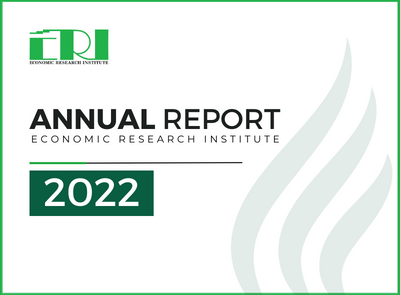This paper outlines a simulation-model for stress-testing household sector in Mongolia. The model uses data from the Household Socio-Economic Survey (HSES) to assess the financial resilience of households to macroeconomic shocks. The model suggests that the household sector is vulnerable to scenarios involving interest rate, basic consumption price, asset price and unemployment rate shocks, and the associated increases in household loan losses due to interest rate and basic consumption price shocks are considerable. The results show that substantial increase in household indebtedness has increased the household sector’s financial fragility. This paper provides a useful starting point for the development of a more holistic stress-testing framework for the Mongolian banking system.
 mn
mn en
en- Нүүр хуудас
- Бидний тухай
ERI нь чанарын өндөр түвшний, мэргэжлийн хөндлөнгийн хяналтаар шүүгдсэн, хараат бус байдлаа хадгалж чадсан, оновчтой асуудал дэвшүүлсэн бодлогын шинжилгээ, судалгааны ажлыг хийх, санхүүжүүлэх, эдгээр судалгаануудын гол үр дүнг нийтэд ойлгомжтой байдлаар интернэтээр болоод бусад мэдээллийн арга хэрэгслээр сурталчлах, бодлогын судалгаа хийх хэрэгцээг тодорхойлж төрийн болоод бусад байгууллагуудад танилцуулахад гол үйл ажиллагаагаа чиглүүлэх юм.
- Мэдээ, мэдээлэл
Манай хүрээлэнгээс зохион байгуулж буй хурал болон судалгаа, шинжилгээний ажлуудтай холбоотой мэдээллүүд.
- Манай Судалгаа
Манай хүрээлэнгийн хийгдэж байгаа судалгаа, хийгдсэн судалгаанууд мөн ERI сэтгүүлд хэвлэгдсэн судалгааны ажлуудыг энэхүү цэсээс авах боломжтой.
- Судалгааны сан
Олон улсын байгууллага болон Монгол улсын судалгаа, шинжилгээний газруудын эдийн засгийн чиглэлээр хийгдэж байгаа болон хийгдсэн судалгааны ажлуудын санг бид энэхүү сандаа бүрдүүлж байна.
- Холбоо барих
